Freezer Tips When The Power Goes Out
The power is out! What do you do with all that food you just bought from Costco!? Or what happens to the vegetables you so carefully harvested and frozen for the coming year? Here are freezer tips when you have no power!
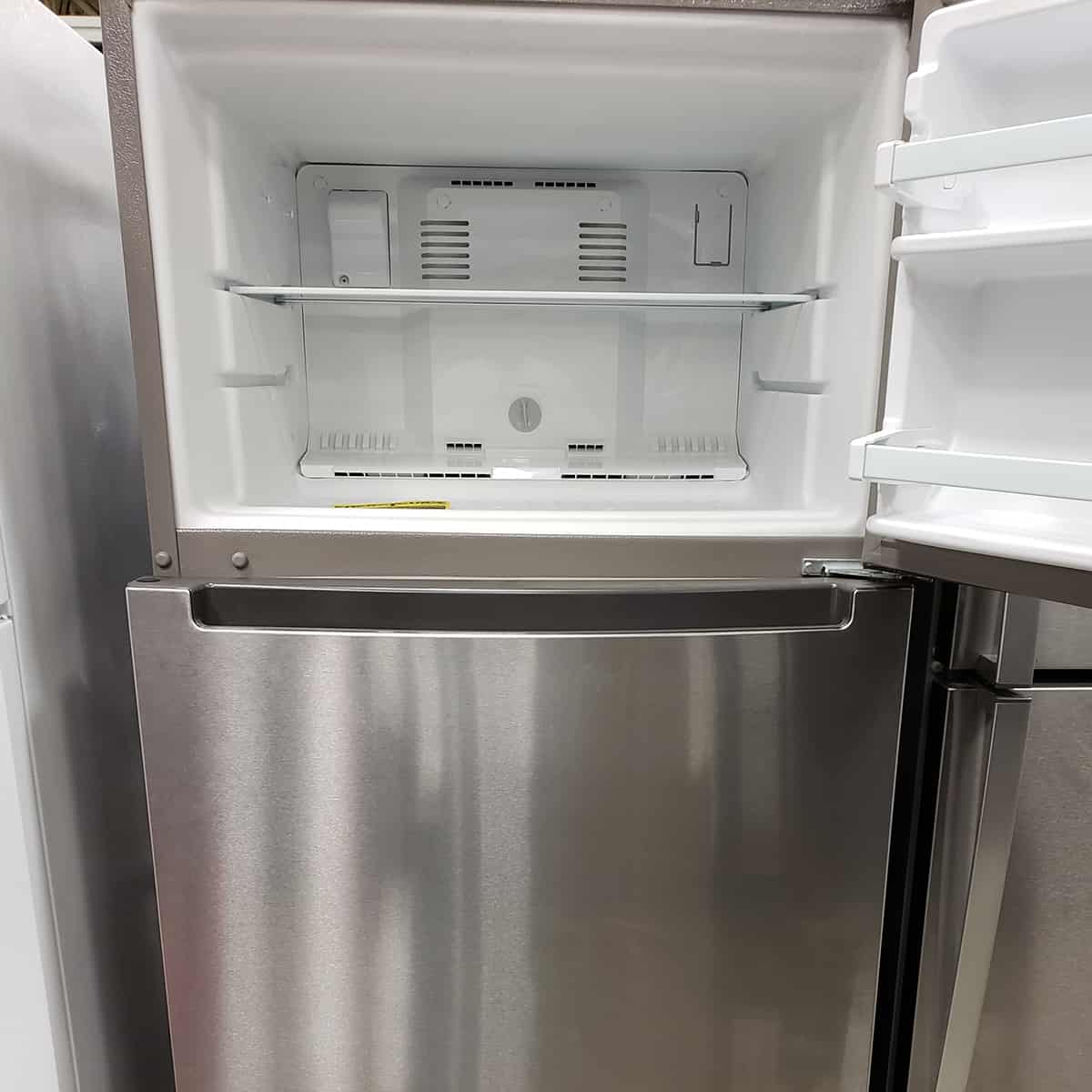
There is nothing like opening a well-stocked freezer to store ready-made meals for busy nights. Or, perhaps, having two kinds of ice cream for sundaes. Or even having a quarter of a cow ready to provide meals for your family for the year.
We all rely on our freezers to hold extra stock of meat, prepared meals, and treats all year long.
However, what happens to all that food when the power goes out? What happens when someone digs into the freezer looking for a frozen treat and leaves the door open?
You need to have a plan!
While many long-term food storage advocates do not support the idea of using your freezer, I do! It provides extra food storage, ready meals, and variety in what you store.
You just need to understand the risk involved in having a freezer, and be prepared for a power outage and how you prepare your freezer.
There’s no point in letting all that food go to waste that you worked so hard to store. These easy, actionable tips will help!
But before we start, let’s talk about some good general day-to-day safety tips you should be following. This is assuming you don’t already have a generator that you can hook up to.
GENERAL FREEZER TIPS
- Use a Freezer Alarm. Freezer alarms help keep you aware of the status of your freezer. Whether a power failure, equipment failure, or failure to close a door properly. So no more late-night ice cream runs with a door left open and finding it all thawed the next morning.
- Use a freezer lock. A freezer lock helps ensure that you and your family will lock the door when not in use. This can also help reduce theft if your freezer is stored outdoors.
- Store meats on the bottom. Cold air pools at the bottom, and keeps your meats from constant door opening to a power failure.
- Keep your freezer defrosted. Your freezer will run more efficiently being routinely defrosted, thus reducing the risk of early failure.
- Wipe down your seal/gasket often. The gasket that keeps your freezer airtight gets dirty and needs to be cleaned to work most efficiently. This helps maintain a better seal.
- Vacuum your vent routinely. This helps your freezer run more efficiently (much like an air conditioner). Also, do not store things in front of the vent to allow proper airflow.
- Keep a freezer inventory. This helps you keep you from overspending, waste, and running out of food.
►► FREEZER MEAL TIP – HOW TO PRESERVE, CAN, FREEZE, AND DEHYDRATE SWEET POTATOES
Freezer Tips Before The Power Outage
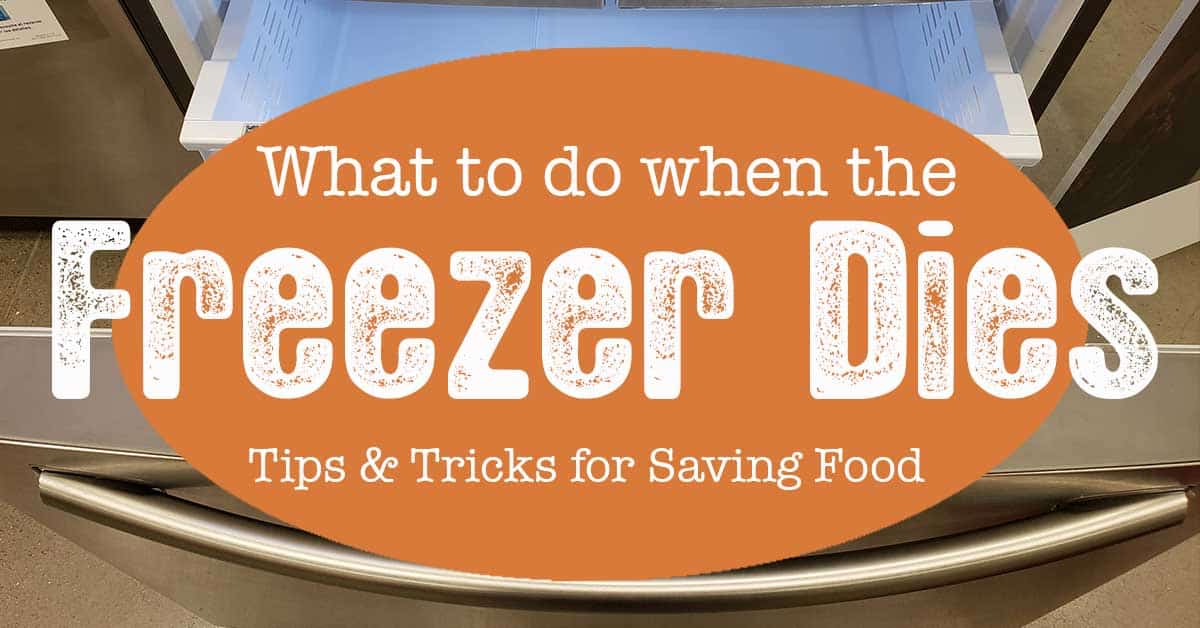
Preparing your freezer for a power outage doesn’t have to be scary or hard. A few steps can save you a lot of heartache later.
Be sure to keep your freezer maintained year ’round.
Keeping maintenance current means you’re freezer won’t be full of frost. The gaskets will keep the door closed properly, the vent will be able to help it run more efficiently to keep food frozen at optimum conditions. This reduces the risk of equipment failure ruining your investment.
Stock your freezer with ice
Odds are, you have gaps in your freezer. Fill those gaps with freezer-safe containers full of water. Some plastics break down easily in freezing temperatures, so use thicker plastics for best results.
Getting them frozen before the power outage gives you these benefits:
- Helps your freezer run more efficiently (freezers hate dead space);
- Keeps your freezer cold longer once it stops working (think gigantic cooler);
- Allows you to have extra ice should you need it;
- Gives you fresh water if your water supply is also compromised
I don’t advocate just throwing loads of loose ice into your freezer as it can act like frost and impede the machine from working efficiently. But during a power outage, do it for the short-term until the emergency is over.
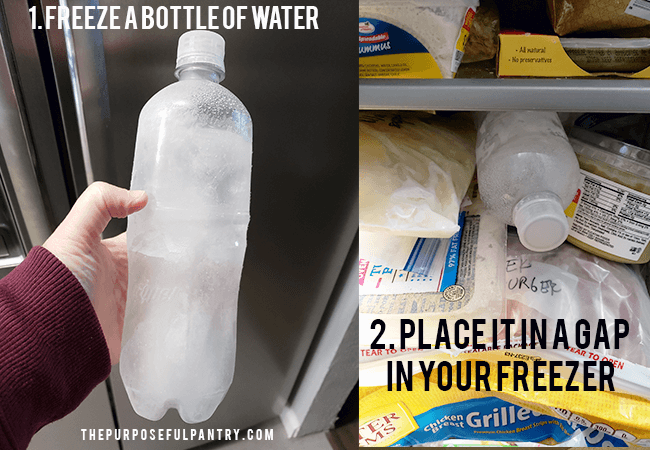
TIP ►► Dry ice is another way to keep the freezer cold if you have access to it. Keep it on the top shelf of an upright, or on a pan in a chest freezer, and it will help keep your food frozen.
Set your freezer to 0° F
Knowing that there will be a problem is key here. For an anticipated power outage, set your freezer to a colder level. You can return it to your normal setting once the emergency has passed.
Keep Meats in the Bottom
Frozen meat is big, huge, solid chunks of frozen stuff 🙂 That’s good for helping maintain a freezer’s temperature. Since cool air pools at the bottom of your freezer, keeping your meats low helps keep them frozen longer.
Expert Tip ►► If you know an outage is coming, double bag those meats or place them on trays to help cross-contamination of thawed meat juices. If you already repackage in vacuum-sealed bags, you do not need to do this.

Eat the Ice Cream First
Yes, I said eat the ice cream first, and other highly perishable foods.
It might also be a time to eat some of those large, boxed foods that take up a lot of space. Go ahead and eat them ahead of the storm to make preparation a little easier on yourself. Replace those with bottles of water or bags of ice.
You can even dehydrate those bags of frozen vegetables to make more space for water bottles for insulation. This also gives your pantry a boost of shelf-stable food storage!!
Freezer Tips During a Power Outage
Don’t Open the Freezer
What’s the very first thing you want to do when the power goes out? Turn on the light, right? Our inclination is the same when it comes to the freezer. Resist that urge – do not open your freezer.
Chest Freezer: With a chest freezer, cold air pools at the bottom, leaving the top of the freezer warmer. If you open the freezer, you’ll introduce that warm air blanket to your freezer that has to use up its valuable stored cold to equalize the temperature.
Upright Freezer: In an upright freezer, the cold air acts like a waterfall when the door is open. It falls down and just pools out the bottom – and you’ve lost all that cold air into the room.
TIP►► A fully stocked chest freezer should stay cold enough for about 48-72 hours, an upright freezer up to 48 hours unopened.
Cover the Freezer with Blankets
This is an especially good tip for chest freezers. Cover the freezer with a few blankets to help insulate it even further.
EXPERT TIP ►► Be sure to leave the vent uncovered. Even though your freezer isn’t working during a power outage, you don’t want that vent blocked when the power returns.
Stock Up Your Coolers
If you can, get as much ice as possible from local stores. Go home and fill up the bathtub, the washing machine (top loading), coolers, and the sink with ice. You can use them as ways to keep food cold. This is particularly a good idea for refrigerated items since they won’t be able to keep their safe temperatures. It can also be a way to extend the life of some foods while you await the delivery of a new freezer.
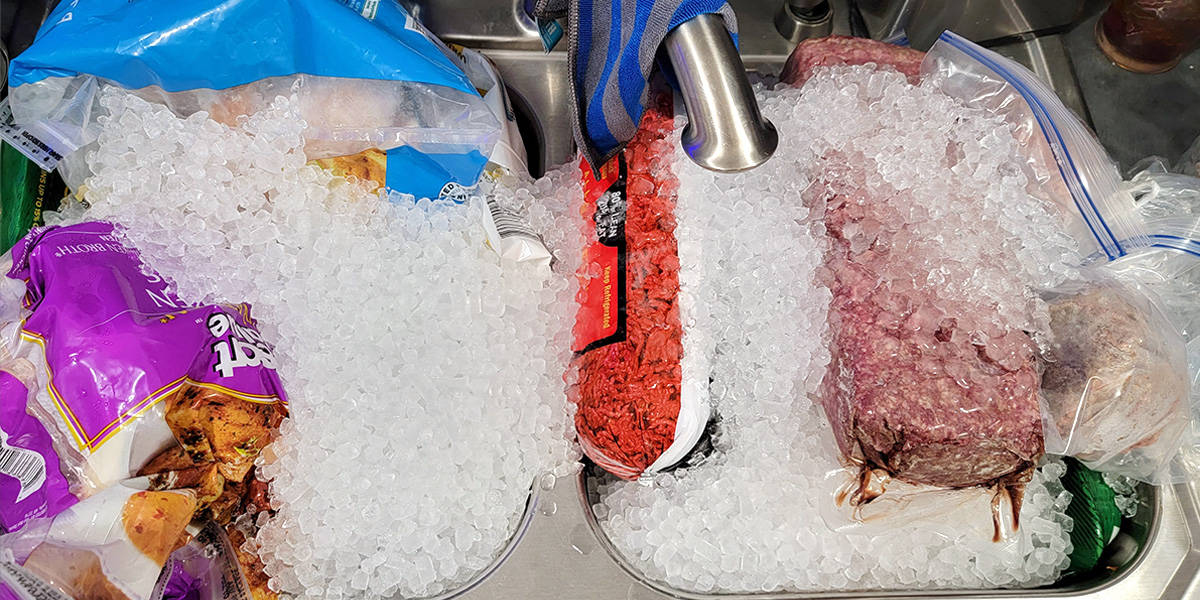
Add Ice to the freezer
You can extend the life of your frozen goods (and refrigerated product) by adding ice. Block ice is best because it will last longer, but it will not insulate the way smaller ice pieces will, which will thaw faster. Dry ice can work even more efficiently than regular ice. Check with your local grocery store to see if they carry it.
Just remember, the minute you open the freezer door, you’ve allowed the warm air to enter, so only do this in extreme outages.
EXPERT TIP: Be sure to keep the food fully submerged in ice. In the example above, those meats were just beginning to thaw on top even after only an hour. It was still saved, but it would be better had they been fully covered.
Move Foods Outside
If your power is out during the winter, and the temps are low enough, move your food to protected containers outside to keep cold! You want to protect those foods from predators, and not put them directly into the sun. Those lower than freezing temps will help keep your food cold until you can deal with the more immediate issues.
Power Outage-Tip: Throw a Party!
Here are a few tips for using up that food before it goes bad:
- Throw a Party! Have a neighborhood BBQ and cook all that food now!
- Can It! Even without regular electric power, if you have gas or even an outdoor propane station, can up those foods to save them.
- Preserve It! While you may not be able to run your electric dehydrator, consider studying up on air or solar dehydrating, fermenting, pickling (this would work for other vegetables), smoking, and other means of non-electric preserving to keep those foods safe.
Temporary Freezer Hack
Not only are ice chests great temporary freezers if you’re trying to save food from your freezer, but you can try this hack we did when we had to change refrigerators. Our new one was to be delivered, so we removed the food, buried it in ice in our only ice chest, and had things stacked in the sink, ready to make the transfer when the new fridge arrived.
THEN the company called to say the fridge was running late and wouldn’t be delivered until the next morning. AFTER we’d gotten rid of our fridge.
So this is what we did.
We loaded our washing machine with freezer products and packed as much ice into it as we could.
Of course, a metal tub isn’t a great insulator, so the items on the outside tended to thaw more quickly than we’d hoped. But it was able to help us save quite a bit of our freezer stock we couldn’t fit into the ice chest, and we even were able to save a few refrigerator items as well.
This wouldn’t have lasted for days for us, but if it’s a temporary issue, this could be helpful for you.
Freezer Tips After a Power Outage
Rule of Thumb — if you still have a considerable amount of ice crystals, and the food temp is 40°F / 4°C or below, you can refreeze the food. You might have a change in quality, but the food is good.
If the freezer is above 40°F / 4°C for more than two hours, don’t take a chance, throw it out. This is where the freezer thermometer (like this one) is a great idea. When you open the door, you’ll get an immediate indication of the temperature of your freezer.
- Foods on top of your freezer may be affected more than those buried, so do a little checking top down for quality.
- Get a freezer thermometer to be able to test the temperature of the freezer if you can’t see visible signs of ice crystals.
- Use a digital probe thermometer to test particular foods. It will have to go into the food and puncture your wrapping. You can then wrap with some plastic wrap to protect the small hole.
Quarter in a Cup of Ice Trick
There’s a tip that I’ve even suggested – to a cup of water into the freezer and freeze it, and then put a quarter on top. Freeze another quick layer of water on top to keep it in place.
If you’ve lost power and your freezer thaws, the quarter would theoretically be at the bottom of the cup and you’d know your food is compromised.
However, that might not work out as well as you’d hoped because water can thaw on the outside of the cup, but keep a core ice block intact, which means it floats. And unless the whole of the cup melts, that quarter may stay on top of that ice block.
And then if the power is restored, your freezer kicks back in, and the cup freezes again, that quarter is STILL on top. But how are you to know that there is a problem? You might have food that has thawed, spoiled, and then frozen again.
Another issue is that the density of ice is more than the density of a bag of frozen strawberries. They are going to thaw much faster, especially if they are at the top of the freezer compared to being buried and surrounded by much more frozen items to help insulate.
So it can be a tool, but don’t rely on it. If it’s at the bottom of your cup, you know. But if it’s still on top, and you suspect there’s been an outage, do a little more investigation. I’d say your container of ice cream will tell you a lot more!
When in doubt, throw it out!
►►READ MORE – WHY I BOIL GROUND BEEF — AND FREEZE IT!
Freezer Tips if You’ve Been Away
- If you have been away from home, and the power has been out, don’t assume your food is okay to eat. You know how long the food had been in the danger zone simply by looking at your freezer, especially if power has returned. Find out from your neighbors or city how long the power was out.
- If you are unsure about the safety of the food you’ve pulled out, or you’ve also experienced a flood that went into your freezer, just throw it out.
Expert Tip ►►: Don’t waste fruit and vegetables that you have to remove from your freezer – throw them into your compost pile!
Use this frozen food safety infographic from Foosavety.gov to know when food is still good after a power outage. There is also a PDF available as a download for the fridge.
YOUR EXPERIENCES
Have you suffered a catastrophic power outage, but were able to save your food? Have you used a hack to help you determine if your freezer was safe? Do you have other organizational tips that can help? Please let us know in the comments below!


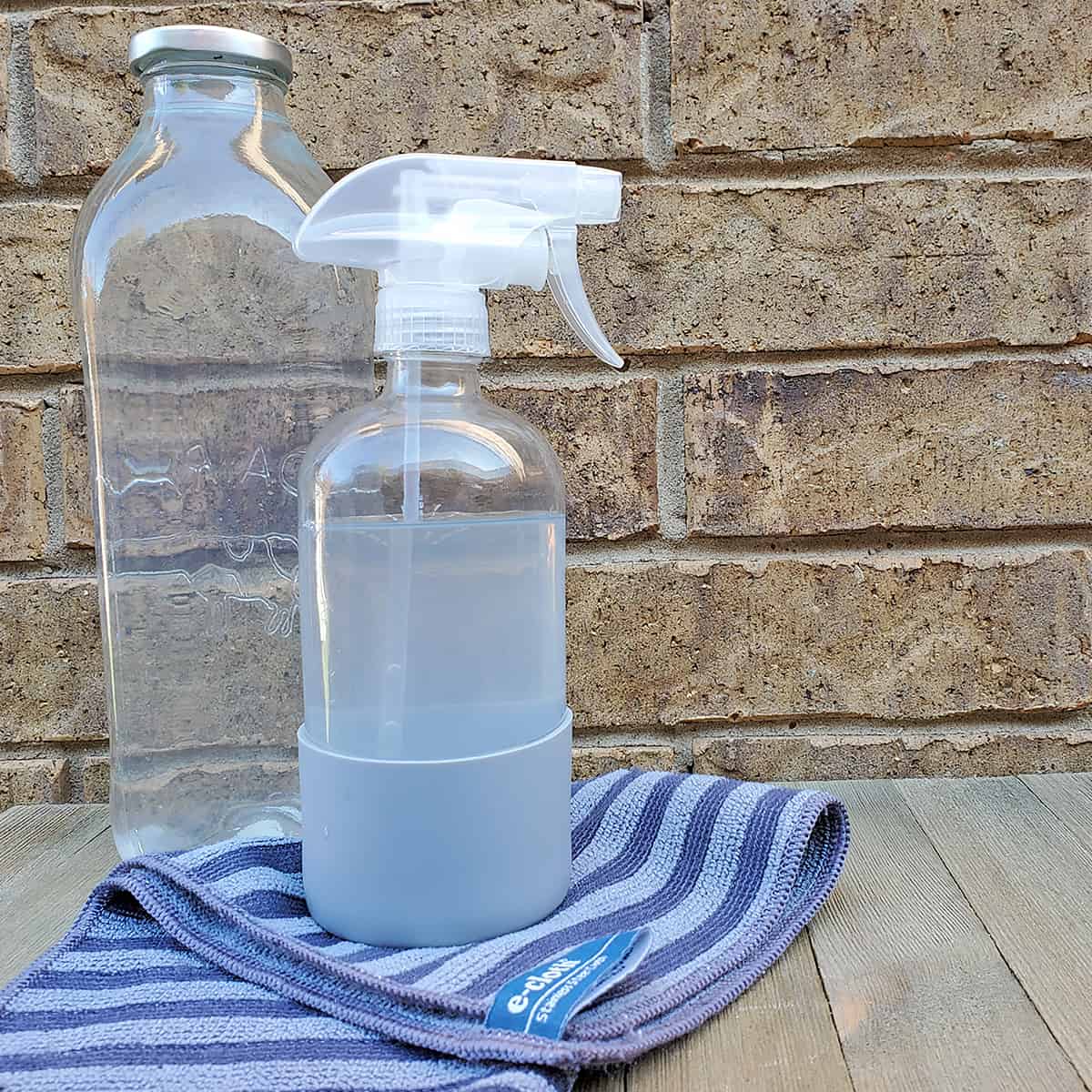

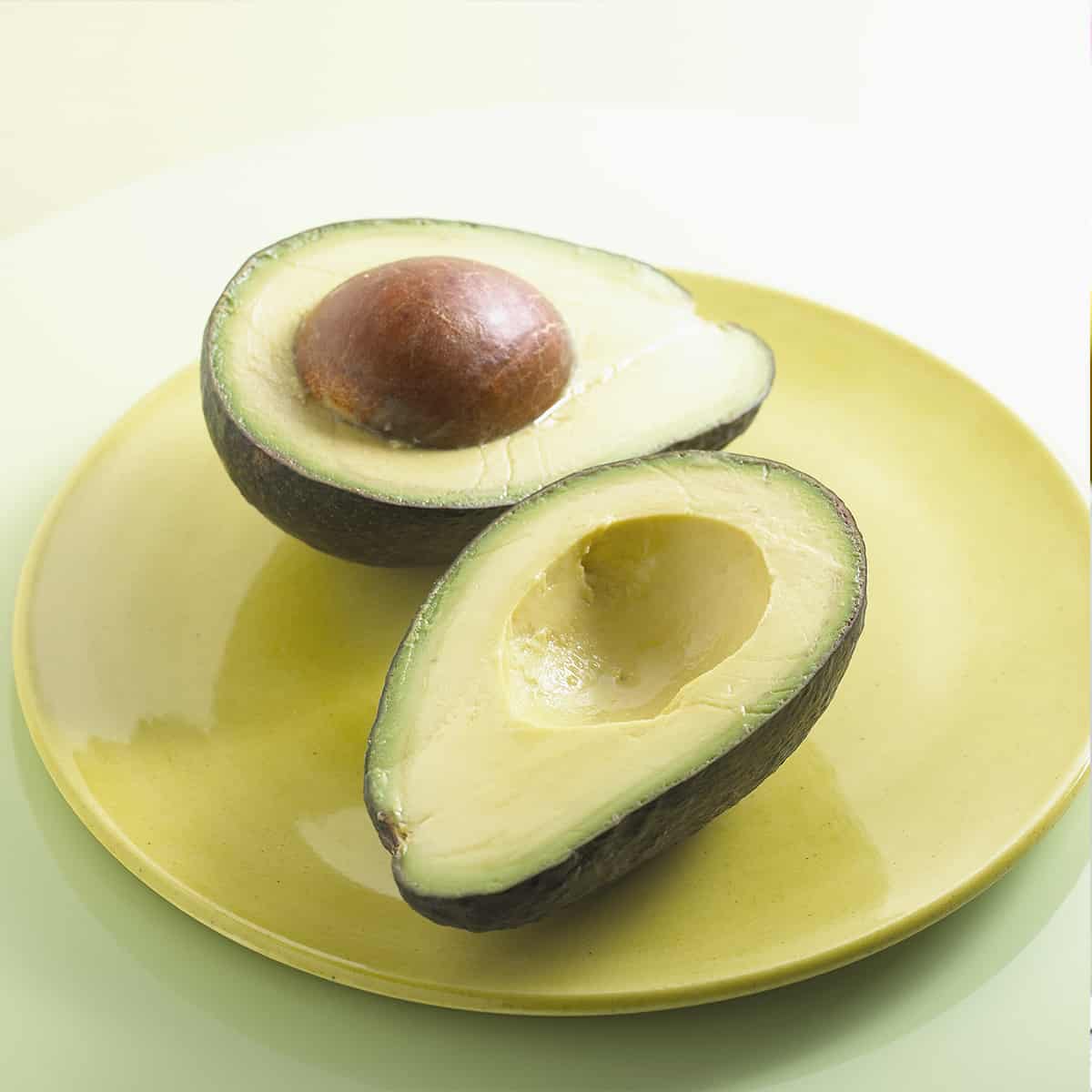
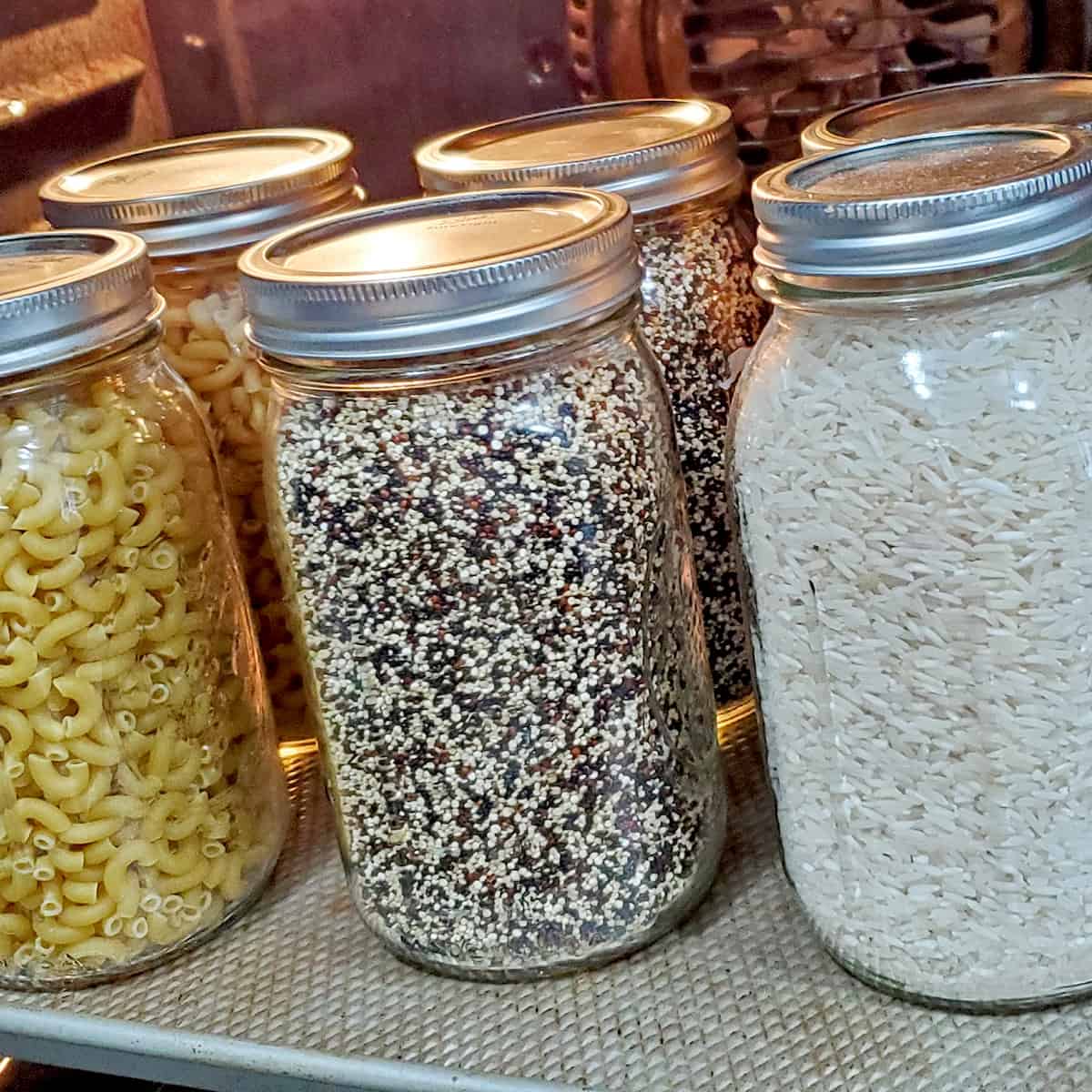
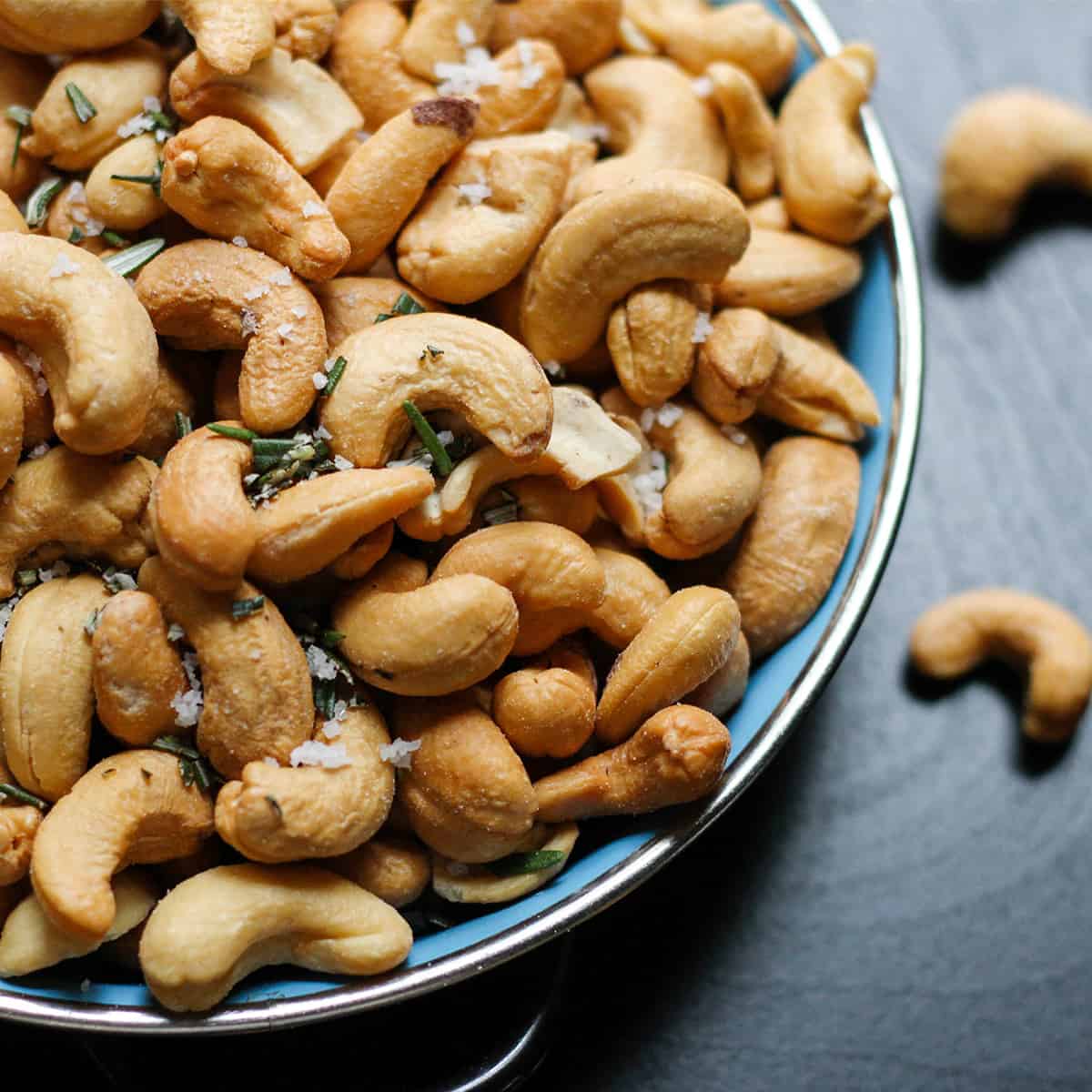

Thanks Darcy for all the useful information.
Will check into the freezer alarm, great idea.
Glad you found it useful!
My electricity was out for 8 days and we had to leave, for a hurricane, so when we got back the freezer, refrigerator and stand up, was full of meat juice. Should I get rid of it. I cleaned it up with bleach but it still has a smell.
You can try to do some of the ideas of filing it with charcoal and newspaper and allow it to sit for awhile, washing with baking soda, etc. Sometimes, however, if the juices got into the insulation, you’ll never get the smell out. We had it happen in my grandmother’s home after she passed away, before we moved into it. My aunt forgot to have the fridge cleaned out and it was gross. No matter how much we cleaned it, the smell always stuck around because it had gotten into the insulation. We too it apart as much as we could, but never could do it all. So give those methods a try. There are quite a few more out on the internet you can do.
How long afterb an outage should it take for freezer to recycle to cold inside again
You’ll have to check with your freezer’s manual for that information as if you were starting with a new freezer.
Thanks for all the great ideas on the freezer. I never thought about an alarm, but will look into it. I will also move my meat to the bottom.
Glad it gave you some actionable ideas to help with your freezer!!
Nothing worse than finding out your child raided the freezer leaving it open just enough to let in summer heat… and having all the sticky popsicles and ice cream bars melt all over everything. Ugh!!
I know! 🙁 That’s why an alarm or a door lock can be a freezer stash saver!